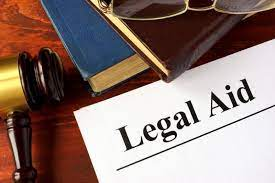Photo : What Is Legal Aid and How Can it Be of Assistance to Me?
Legal aid provides assistance to people who are unable to afford legal representation and access to the court system. This definition essentially means that if a person doesn't have the financial ability to afford a legal representative (usually a lawyer), to ensure their rights are upheld. In many countries, legal counsel is provided without cost if you can't afford the costs involved.
Who Is Eligible for Legal Aid?
As mentioned above, legal aid is applicable to almost anyone, but terms and conditions do apply. In most democracies worldwide, almost anyone can qualify. However, this isn't always the case. Generally, legal aid is available to persons who, after taxes, earn less than a certain amount. For reference, if an individual makes less than USD 385 net income, they're eligible to receive legal aid.
The History of Legal Aid
Legal aid has a symbiotic relationship with so-called welfare states, with the rule of thumb generally being the state in question's attitude towards welfare. Historically speaking, many continue to emphasize that legal aid plays a crucial role in ensuring individuals get fair and just access to rights of all kinds. You may ask yourself how these go hand in hand, with the answer being to allow the individual legal enforcement of economic, social, and cultural rights. Again, a symbiotic relationship can be indicated because, without the one, the other will probably not exist. Different parts of the world have easy access and availability to legal aid, such as America. In Middle eastern countries, legal aid is often non-existent. One way to make it readily available to all would be to digitize its accessibility by using a company such as Brain Box, which specializes in web applications of all types.
Legal Aid in Recent Times
Throughout the majority of the 20th century, legal aid has developed hand-in-hand with progressive principles. The legal aid movement as a whole has been widely supported by members of the legal profession that have a sense of responsibility for those classified within the low-income bracket. Despite the fact that legal aid's core duty is to provide more equality in the legal and justice sphere, this is often not the case. It is a fundamentally flawed concept due to the fact that legal aid depends solely on the funds provided, which are mostly limited due to economic constraints that dictate what and where a person can make use of legal assistance. For example, in a country like India, the system simply can't provide adequate assistance. The concept has repeatedly come under fire due to its lack of impact as well as access for those impoverished and most in need of legal aid.
Where and Where Can Legal Aid Help You?
Generally speaking, provided you qualify for legal aid, you will be assisted in criminal cases where you are suspected of committing a crime, civil suits, and claims in court where a judge needs to make a decision in terms of a dispute between yourself and another person or company. There is a third case where occasionally an issue may include both a civil and criminal case; you may be charged with a crime (under criminal law) and by another person (under civil law) concurrently.
Conclusion
Legal aid is arguably a fundamental piece of any democratic constitution. In many cases, it's the most vital piece of the puzzle in ensuring all types of rights and parts of the constitution are upheld. One can't forget that not everyone is eligible for legal aid and this varies globally. Make sure you clarify the availability of this service and your eligibility should you ever need it.
* This is a contributed article and this content does not necessarily represent the views of universityherald.com









